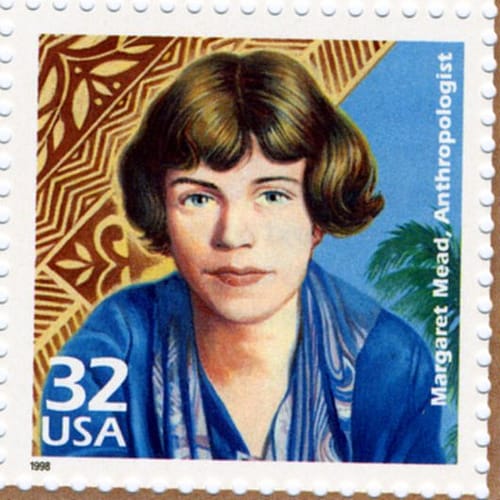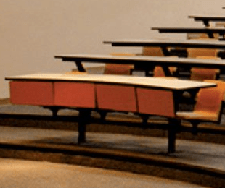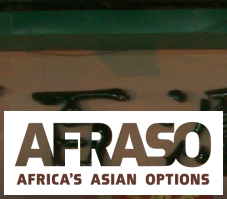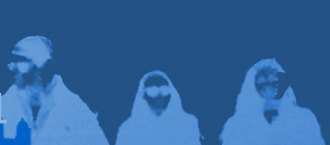Let’s conclude this Allegra week with another one of our monthly events’ post! No thematic focus this time but a few opportunities to further explore the topics of this week’s posts as well as a chance to address the much debated issue of academic precariat. And if you have not yet done so, join the SAPIENS-Allegra competition and become the next Margaret Mead!
As always: Do get in touch with Andrea at andreak@allegralaboratory.net or audef@allegralaboratory.net if you want your event to feature in our next event list or if you feel like writing a short report!

Competition: Will the next Margaret Mead please stand up? The SAPIENS-Allegra competition to discover new public anthropologists.
The anthropologist is a peculiar creature. We study the world, yet too often do not share our insights with the world.
Our work explores some of the most exciting and relevant issues that face humanity. We study our collective origins, the origins of violence, economic injustice, health disparities, our relations to family, constructions of “race,” education systems, how cities organize themselves, how we talk, climate change, emerging digital worlds, and so much more. But all too often we conclude our research into these vitally important topics with texts that are accessible only to a narrow group of academics.
To encourage anthropologists to write about their work for a broader audience Allegra and SAPIENS have partnered to launch a competition for more engaged types of anthropological writing.
We invite submissions for timely and engaging articles that are accessible yet authoritative, exciting yet not sensationalistic. In particular, we welcome narrative-driven submissions that will appeal to a broad, adult college-educated readership, while demonstrating how anthropology contributes to a shared understanding of our world. [more]
Deadline for submissions: 1 July 2016
 Call for papers: The Precariat & The Professor
Call for papers: The Precariat & The Professor
In the past 25 years, higher education has seen some major transformations. The percentage of college students who are Hispanic, Asian/Pacific Islander, Black, and Native American has increased steadily while the percentage of white students declines. Unfortunately, increased enrollment and newfound visibility does not necessarily translate into a seat at the table. University administration and faculty do not reflect the demographic shifts seen in student populations. In 2013, 84 percent of full-time professors were white, and 53% white male. At the same time, tuitions continue to rise, but rarely do those funds trickle down to the classroom. More money is being funneled into administrative positions and away from tenure-line hires. Most teaching positions are now part-time and low-paid adjunct positions. According to a 2012 report from the American Association of University Professors, contingent faculty make up over 75% of all instructional staffing. In 1975 only 25% were in these positions.
The most active individuals addressing these institutional shifts, are the contingent faculty members themselves. Unfortunately, their marginalized positions limit their ability to participate in campus governance. In addition, the culture of insularity and individualism challenges any attempts at solidarity building and delegitimizes the experiences of the precariat when they take their concerns out into the public sphere. Their work, their experiences, and their contributions to scholarship and teaching are often dismissed, mislabeled, misunderstood, or entirely ignored.
The Precariat and The Professor addresses common misconceptions and will serve as a valuable resource for anyone trying to understand the effects of recent transformations in higher education. [more]
Deadline for submission of proposals: 1 July 2016
 Conference: The 2016 International Conference on Humanities and Cultural Studies
Conference: The 2016 International Conference on Humanities and Cultural Studies
6-10 November 2016, Prag, Czech Republic
The central focus of social sciences is to examine, find and/or produce a meaning or purpose for individual human beings and their societies across different cultures. For this reason, it is the primary concern of social sciences to describe, analyze, define and criticize different forms of “living” and “life-values”, which are quite peculiar to our contemporary era of information. In this context, it is highly significant that the very idea of social sciences will be fulfilled only if social scientists can find a venue where they can exchange and discuss their research outcomes with each other.
We would like to invite you to submit your proposals for the “1st International Conference On Humanities And Cultural Studies”, which will take place between November 06 and November 10 2016 at the Hotel İnternational Prague in Prague/Czech Republic. The theme of the conference will be “Rethinking Social Sciences.” [more]
Deadline for submission of abstracts: 30 September 2016
 Workshop: Fraud, fake and make-believe. Transregional and transdisciplinary perspectives
Workshop: Fraud, fake and make-believe. Transregional and transdisciplinary perspectives
1-3 December 2016, Goethe University Frankfurt, Germany
Email scammers act as if they want to share their riches with you. Madoff presented himself as Wall Street’s canniest broker. Fake-artists like the Yes Men force us with their as-if claims to reconsider political assumptions. Pyramid schemes, Ponzi schemes and multi-level marketing travel from Asia to Africa and invite millions of people to partake in global capitalism. New communication technologies and the dissolution of borders allow more anonymous, transregional interactions, and therefore more potential for fraudulent make-believes as ever before.
In public discourse, fraud is a metaphor for social flaws, anxieties and insecurities. Frauds and fakes seem to reveal hidden truths about the global economy, politics and academia. Fraudsters are discussed as symptoms of social decay, as young rebels or as political heroes. However, fraud has rarely been the object of systematic research. Instead of using fraud as a metaphor to scandalize social phenomena, we invite contributors to consider frauds and as-if claims as social practices and to explore the normalities and imaginaries in which they are embedded. Which irritants, questions and insights does the study of fraud and make-believes offer for the social sciences and humanities? What do the works and creative strategies of con-artists and fake-artists reveal about transregional connections? [more]
Deadline for submission of abstracts: 24 July 2016
 Conference: Lost and transformed cities: a digital perspective
Conference: Lost and transformed cities: a digital perspective
17-18 November 2016, Nova University of Lisbon, Portugal
The city is by definition a living entity. It translates itself into a collectiveness of individuals who share and act on a material, social and cultural setting. Its history is one of dreams, achievements and loss. As such, it also bears a history of identity.
To know the history of cities is to understand our own place in the contemporaneity. The past is always seen through the eyes of the present and can only be understood as such.
Time erases memory through development and disaster. Cities can simply disappear because they lost their status in society, suffered severe catastrophes or transformed themselves so radically that their history is no longer materially traceable. They can also exemplary absorb the built and cultural heritage through rehabilitation and re-use. Archaeologists, historians, art historians, geographers, anthropologists and sociologists try to decipher and interpret a diverse but comparable amount of data in order to translate remote realities into a contemporaneous discourse. The more interconnected the research is the more efficient it becomes. [more]
Deadline for submission of abstracts: 30 June 2016
Featured image by Frank Friedrichs (flickr, CC BY-NC-ND 2.0)


